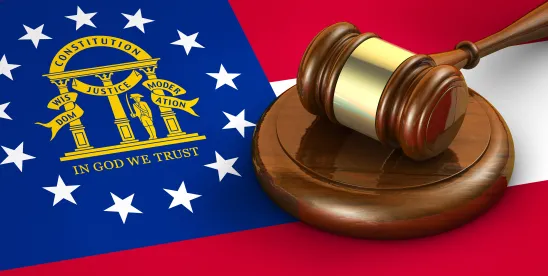On the heels of growing national concern over third-party litigation funding, Georgia has enacted SB 69, a statute that imposes strict regulation, transparency, and liability exposure on litigation funders operating in the state. For defense-side stakeholders – including carriers, corporations, and trial counsel – this law introduces meaningful tools to uncover, scrutinize, and push back against funding practices that have long inflated risk, delayed resolution, and distorted valuation.
Following is a breakdown of what changes and why it matters.
Litigation Funding Agreements Are Now Discoverable
Effective immediately for all cases filed after enactment.
- Amends O.C.G.A. § 9-11-26 to make the existence, terms, and conditions of third-party litigation funding contracts subject to discovery.
- Applies to agreements with a party or for nonparties (e.g., related plaintiffs), if the funding amount is $25,000 or more.
This permits routine discovery requests into whether outside capital is backing a case, and under what terms. It also allows the defense to assess whether litigation or settlement decisions are being driven by a third party rather than by the plaintiff or counsel.
Funders Must Register and Are Subject to State Oversight
Beginning January 1, 2026, all litigation financiers must register with the Georgia Department of Banking and Finance. Disclosure requirements include:
- Ownership structure
- Affiliations with any foreign persons, foreign principals, or sovereign wealth funds
- History of criminal convictions for leadership or owners
- Whether any interest in the funder is held by a designated foreign adversary (barred entirely).
This framework is designed to curtail opaque or offshore funding sources and ensure state-level visibility into who is financing Georgia litigation.
Litigation Funders Are Prohibited from Influencing the Case
A registered funder may not:
- Exercise any control over settlement decisions, strategy, or counsel selection
- Charge fees that exceed the plaintiff’s net recovery after fees and costs
- Retain any right to select experts or vendors
- Securitize, assign, or sell the agreement (with limited exceptions)
- Require signature by anyone other than the plaintiff directly.
Contracts must contain specified consumer warnings, must not be executed by counsel, and must preserve plaintiff autonomy. Agreements that violate any provision of this framework are void and unenforceable. This provides leverage in active cases where funding exists but the structure runs afoul of the law.
Funders Can Be Held Liable for Frivolous Litigation
If the amount financed is $25,000 or more, the litigation funder may be jointly and severally liable for court-ordered sanctions or cost awards arising from frivolous claims – unless the funding was fixed, non-contingent, and fully repaid. Funders also are required to indemnify plaintiffs and their attorneys for costs or sanctions – unless those were caused by intentional misconduct by the plaintiff or plaintiff’s lawyer.
This opens the door to motions that name the funder directly as a responsible party for fees or sanctions, particularly in exaggerated, manufactured, or otherwise unsupportable claims.
Admissibility Rules Remain Narrow But Discovery Is Broad
The statute does not make funding agreements admissible at trial. However, it does not preclude admissibility if relevant under general evidence law (e.g., impeachment, bias, or fraud). This preserves strategic use of funding disclosures during motion practice, expert challenges, or where funder influence is relevant to credibility or valuation.
SB 69 marks a fundamental shift in Georgia civil litigation. For the first time, litigation finance is subject to statutory regulation, transparency, and liability. Funders are no longer invisible players immune from discovery or consequence. For defense counsel and clients, this is an opportunity to reassess how third-party capital is shaping exposure and to deploy new tools to limit its reach.



 />i
/>i

